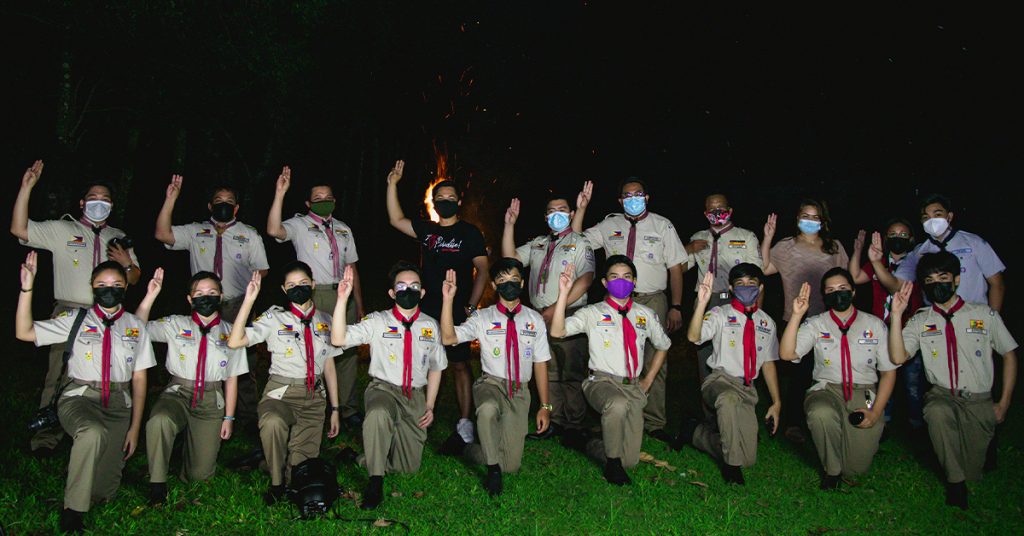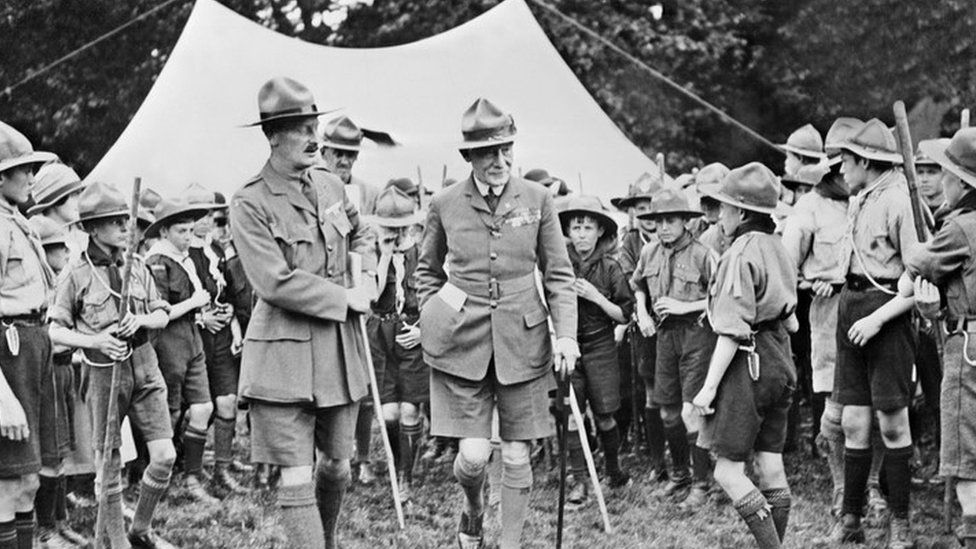World Press Freedom Day highlights the value of independent media and the fundamental values of press freedom. This noteworthy day acts as a reminder of the importance of one’s commitment to press freedom across the world. Most importantly, it is a day intended for giving tribute to the journalists who died in pursuit of stories and the truth.
In line with the celebration of World Press Freedom Day, as follows are 10 painful realities of the Philippine press freedom based on the award-winning documentary, A Thousand Cuts.
A Thousand Cuts is a 90-minute documentary released on January 25, 2020. It was written and directed by Ramona S. Diaz and distributed by PBS Distribution. It mainly focuses on Maria Ressa, Rappler’s CEO, and her being a vocal critique of the administration of the Philippine President, Rodrigo Duterte. The documentary debuted at the 2020 Sundance Film Festival and has garnered winning awards at various film festivals. “Death by a thousand cuts” is how Filipino-American journalist Maria Ressa would define the slow disintegration of democracy due to attacks on press freedom.
The film is a cautionary tale for all to learn from, streamlining the unfortunate realities of the Philippine press. It reflects the media’s war on truth and the magnitude of risks the journalists are willing to take in pursuit of the holy grail that is the truth.
1. The press has lost its power.
Journalists are no longer as trusted as they used to be before. They used to set the agenda. They used to be gatekeepers. They had the power to expose the truth. However, at present, the influencers are the new setters of the agenda. The influencers have risen, and they often take advantage of their biases. Moreover, given that they have a bigger platform, people tend to lean on and believe whatever the influencers say, despite the apparent deception. As a result of exploiting their platform, they become disseminators of fake news.
A testament to the press’ loss of power is the documentary’s scenario showing that Duterte banned Rappler journalist Pia Ranada from Malacañang because he was “annoyed” by their reporting. “It hurts. That’s really been demoralizing. I mean, I’m a reporter. I want access,” she claimed. The ban is still in effect, and Ranada cannot cover any palace-related activity. This situation showcases the saddening loss of power by the press.
2. Journalists are always the first casualties of threats and attacks.
As shown in the documentary, prosecutors brought the new accusations against Ressa while she was on a trip to the United States. Not only that, but the government also unreasonably accused her of multiple charges. Her persistence and fearlessness in opposing a hostile government have put her safety, name, and life in extreme jeopardy. According to media watchdogs, the allegations against Ressa were intended to intimidate individuals who oppose and criticize Duterte’s leadership and his war on drugs. This threat proves that journalism is indeed a profession fighting for the silenced and opposed truth.
Approximately 35 journalists and media personnel were killed from 1972 to 1986 during the Marcos Martial law regime. And according to the latest data from the National Union of Journalists of the Philippines, there were 265 documented cases of press freedom violations since 2016. Among those cases, the NUJP recorded 23 journalists and media professionals killed, 38 cases of libel and cyber libel, 32 red-tagging incidents, and 20 distributed denial of service (DDOS) attacks under the Duterte regime.
Generally, journalists tend to be perceived as the enemy of the government and the community, leading to a vicious tragedy. When the people’s fundamental rights are constantly assaulted, and freedom is under attack, the mass draws their strength and courage from the resilient journalists.
3. For many, their belief stands where the money or power is.
Mentioned in the documentary are two individuals who benefited from Duterte’s rhetoric. Ronald “Bato” dela Rosa, a police chief who strived to use the drug war to advance his career, and Mocha Uson, a social media darling who intended to transform media fame into political power. “I will kill for the president,” dela Rosa declares, and he doesn’t appear to be joking at all.
As seen in the documentary, Mocha Uson posted a Facebook live to respond to an allegation that she was a troll who supported Duterte’s propaganda. “Isn’t Duterte the President? Shouldn’t we submit to his authority? We respect the government. We respect the president,” Uson claimed. “Is it propaganda to be nationalistic? And you’re a troll if you’re patriotic?”
The truth is often a hard pill to swallow. It usually gives us pain. However, it is indisputable that who or what one defends and stands for speaks loud volumes about their character.
4. Authorities talk about death and violence as if they are normal.
“Violence is my strength,” President Rodrigo Duterte said in an interview with Maria Ressa. A scenario in the documentary also showcases Duterte’s tarpaulin posted in front of a police department. “Duterte to drug user: Stay home, or I’ll kill you if I see you,” the headline reads. The recorded statements of leaders evenly reflect the type of governance they have.

These circumstances also show how dangerous it is to be a journalist who stands up for the truth and fights against the government’s wrongdoings. Members of the press live with their one foot in the pit.
“A Thousand Cuts” reflects the threats to basic human rights, human lives, and press freedom that exist, all at once. Direct assaults by the authorities holding immense power manifest the overstretch of power they possessed. In a nation where death and violence are spoken so casually, or worse, done casually, by those who uphold great power, violent intimidation consumes the masses.
5. Violence is being used as a weapon for war.
The government’s initial action was to impose fear and threat on the greater mass. They implied that whoever does not abide by their orders is compelled to face dehumanizing repercussions. In the documentary, loud volumes of violence resonated multiple times in disturbing echoes. President Duterte casually claimed in a one-on-one interview with Maria Ressa that he killed three people.
Its battle has turned into a bloody nightmare in the constant war for the truth. Platforms of aggression arose. Humanitarian values are also misused. Furthermore, the documentary highlights that the sense and essence of justice is something not to be forgotten.
The Philippine democracy is gradually collapsing and bending with each cut of attacks, closer and closer to the pinnacle of breaking. The question is, how far are we willing to go to defend our rights to a free press and other fundamental human rights?
6. Threats to journalistic freedom are highly prevalent in the Philippines.
One of the most touching scenarios in “A Thousand Cuts” is when Ressa transforms Martin Niemöller’s Holocaust poem into something noteworthy. The classic poem about not speaking out when “they” come for people who aren’t precisely “you” and then having no one to stand up for your help is given a twist. “First, they came for the journalists. We don’t know what happened after that.”
Despite being one of the freest countries in Asia, the Philippines is still a risky location to work as a journalist. As journalists believe, a threat to the press is a threat to everybody. Whether one is a journalist or not, disseminating truth in the fight against lies always imposes danger. The threats to safety and the inevitable tendency of being red-tagged inflicted by the authorities prove that a threat to the press freedom jeopardizes everything. Despite the risks, journalism persists in the face of increasing threats. These forms of bravery demonstrate how courage drives journalists to fulfill their duty to be agents of truth.
7. The press is being repressed.
The documentary depicts how Maria Ressa has consistently voiced the significance of press freedom and the government’s weaponization of social media. Having a free press means communicating information without influence or fear from influential individuals or groups. Yet, the Philippine government arrested and convicted her of libel charges in June 2020, followed by being arrested multiple times due to her transparency.
“It’s quite challenging to be a journalist now. We feel like we’re criminals for being journalists,” Pia Ranada, a Rappler journalist, claimed in her speech. She said they had to pretend not to be journalists to do the work of journalists. Her statement proves how hard it is to be a journalist. Journalism is about being brave enough to voice the truth despite the danger one is entitled to face.
Upon becoming aware of the press’ influence on the masses, the late dictator Ferdinand Marcos Sr. had full dominion over the media. Thus, Marcos Martial Law repressed press freedom.
As living witnesses and survivors of the Marcos regime, the journalists noted Duterte’s assaults on media organizations such as the Philippine Daily Inquirer, the multiple accusations against Rappler, the shutdown of ABS-CBN, and the red-tagging of the media.
Veteran members of the College Editors’ Guild of the Philippines also claim that the anti-terror law, which Duterte passed despite the public’s strong opposition, presented another threat to journalistic freedom. “The anti-terrorism law is de facto martial law – and this early, it telegraphs abuse. So, we hold the line. We stay on watch,” the group said in a statement.
In the documentary, Ressa asked how her writer Jodesz Gavilan was doing. “I’m enjoying the last days of democracy,” she replied.
8. Philippine democracy is fragile.
Everything an individual hears, reads, and shares daily is an essential component of democracy. A free press can convey the truth concerning matters, policies, and events, considering that the government does not influence it. It allows citizens to hear other people’s thoughts or obtain new knowledge and perhaps share their viewpoints with others. In a fair society and genuine democracy, truth, bravery, and a just purpose triumph. However, the Philippine government’s direct assaults on the press, as reflected in numerous scenes in the documentary, render the ideology of democracy meaningless.
“If you don’t use your rights, you will lose them,” Maria Ressa emphasized. Calls for reforms by the people prevail their voices as the power from which change is rooted. In a democratic society, the interests of the citizens are entitled to be addressed. Thus, criticisms and negations of laws and administration are allowed. All citizens in democratic governance are subject to liberty. The profound idealogy of democracy means that no authority is entitled to use its power to exploit the mass.
9. Journalists are persecuted.
Maria Ressa, as Time magazine defined her, was ready to embrace greater risks for greater truth.
“My arrest doesn’t hurt me because it only makes me more resolute. Because I see firsthand how the law is bent to the point that it is broken,” Ressa explains.
“What we’re seeing is death by a thousand cuts of our democracy. And it is done. Then think about the bleeding, right? Little cuts, little cuts to the body politic, to the body of Philippine democracy. And when you have enough of these cuts, you are so weakened that you will die,” she added.
If citizens are not informed and updated on the factual events, they will be unable to make educated, informed choices due to the historically distorted information they absorb. This negligence of truth is the reason why honest journalists exist.
“We will not duck; we will not hide. We will hold the line. Join us,” Ressa claimed. It is a challenging profession because journalists ought to pay a high price for telling the truth. A nation that’s okay with the highest degree of fraudulence is a nation to fear.
10. It is extremely challenging to work as a journalist.
“I think anyone who stands up has a lot to lose,” Maria Ressa said.
For the love of their profession, journalists risk their safety, privacy, and even their lives. Both journalism and press freedom are essential tools in combating corruption and wannabe dictators that are to be opposed. Undoubtedly, writing for the truth is a grave matter beyond the borders of the ordinary.
The pen is mightier than the sword. This concept is proved by situations in which the oppressors are guilty and use violence as a weapon to save themselves as a last resort. Most importantly, journalists wholeheartedly offer their lives to their duty, and the least the masses could do is to fulfill their part. One can do simple things to defend press freedom by amplifying the truth and carefully understanding what one sees, reads, or hears.
Liberty to open discussions and access to factual data are all dependent on a free press, also known as “Independent Journalism.” As one of the cornerstones of democracy, press freedom is integral. The strength of democracy is in the hands of the people, which implies the necessity to be wise in employing their rights. The more people talk about these pressing matters, the more educated they will be, and the more capable they will be of making the best decisions for their future. It is essential to know that democracy is a fragile system that must be fought for; otherwise, it would shatter under the weight of a thousand cuts.
The battle for the truth and the democratic legacy in the Philippines is not that simple. What happens next to a country that neither prioritizes nor verifies its facts? A country that neglects facts is a scary place to live in.
Are you eager to know more about this article’s featured documentary? You may watch A Thousand Cuts Full Documentary for free on Frontline PBS’ official Youtube channel.







